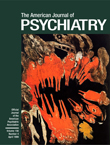Problems Reported by Parents of Children in Multiple Cultures: The Child Behavior Checklist Syndrome Constructs
Abstract
OBJECTIVE: The purpose of this study was to compare syndromes of parent-reported problems for children in 12 cultures. METHOD: Child Behavior Checklists were analyzed for 13,697 children and adolescents, ages 6 through 17 years, from general population samples in Australia, Belgium, China, Germany, Greece, Israel, Jamaica, the Netherlands, Puerto Rico, Sweden, Thailand, and the United States. RESULTS: Comparisons of nine cultures for subjects ages 6 through 17 gave medium effect sizes for cross-cultural variations in withdrawn and social problems and small effect sizes for somatic complaints, anxious/depressed, thought problems, attention problems, delinquent behavior, and aggressive behavior. Scores of Puerto Rican subjects were the highest, whereas Swedish subjects had the lowest scores on almost all syndromes. With great cross-cultural consistency, girls obtained higher scores than boys on somatic complaints and anxious/depressed but lower scores on attention problems, delinquent behavior, and aggressive behavior. Although remarkably consistent across cultures, the developmental trends differed according to syndrome. Comparison of the 12 cultures across ages 6 through 11 supported these results. CONCLUSIONS: Empirically based assessment in terms of Child Behavior Checklist syndromes permits comparisons of problems reported for children from diverse cultures.



